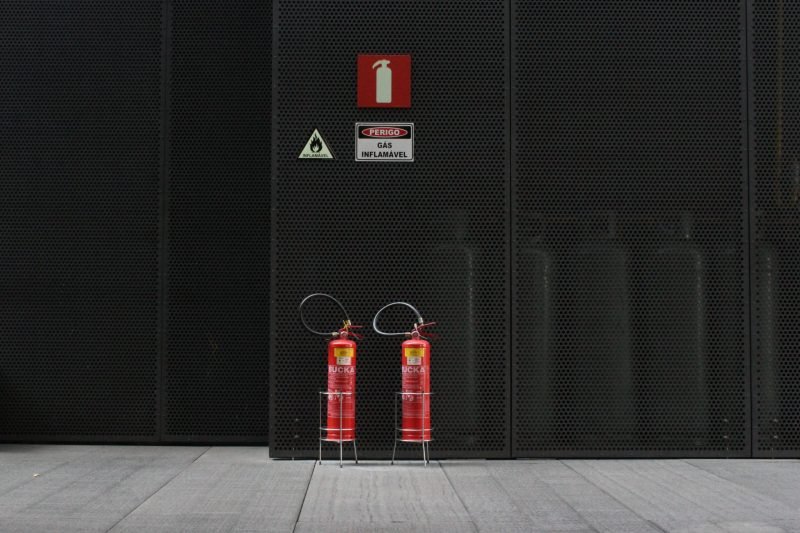About Us
We realise fire prevention, health & safety and security is yet another demand on finite resources which could be otherwise spent elsewhere in your business. That's why we specialise in systems that work in harmony with your existing management process thus enabling you to integrate the management of safety into the day-to-day running of your business. In other words, safety need not be a burden if it's designed to fit in with the normal running of the business.
We are a small group of safety professionals with over 50 years experience at the practical end of fire, security and safety. We specialise in the management tools that employers must have to comply with the mass of legislation
By letting us act as your fire, security and safety consultant you can be assured that you will be able to comply fully with all current legislation thus allowing you to concentrate on other areas of the business,
What is the fire safety order (Regulatory Reform (Fire Safety) Order 2005)?
If you own, manage or operate a business, you need to comply with fire safety law. The main law is the Regulatory Reform (Fire Safety) Order 2005 or "the Fire Safety Order". It applies across England and Wales and came into force on 1 October 2006.
Who does it apply to?
The Order applies to almost all buildings, places and structures other than individual private homes – that's individual flats in a block or family homes.
Other places covered by the Order include shared areas in houses in multiple occupation (HMOs), blocks of flats and maisonettes.
What are your responsibilities?
You need to make sure:
Your premises reach the required standards.
Employees are provided with adequate fire safety training.
What does 'adequate fire safety training' mean in practice?
It varies from business to business, but generally includes:
Induction training to cover general fire awareness.
Periodic refresher training, or extra training where the level of fire risk increases as a result of changes in your operations.
Training to support people in meeting their fire safety duties – for example, keeping your 'responsible people' up to date.
Training to build appropriate skills such as fire risk assessment, fire warden or using fire extinguishers.
What about Fire Risk Assessments? It's mandatory to carry out a detailed assessment identifying the risks and hazards in a commercial premises. By law, if you are responsible for the premises, you need to make sure that a Fire Risk Assessment has been completed by a competent person. Additionally, your Fire Risk Assessment must be recorded if you have a total of five or more employees or your business has a licence under enactment in force. The responsible person for the premises is also required to: Consider who may be especially at risk. Eliminate or reduce the risk of fire as far as is reasonably practical. Provide general fire precautions to deal with any risk. Take additional measures to ensure fire safety where flammable or explosive materials are used or stored. Create a plan to deal with any emergency and where necessary record any findings. Maintain general fire precautions, and facilities provided for use by firefighters. Keep any findings of the risk assessment under review.
New regulations arrive with ever increasing frequency, making it very difficult for employers to keep up to date and comply with legislation.
The recent imprisonment of a company director and responcible persons for fire and safety failures has made everybody sit up and take notice.
Society at large now expects to be protected from risk in every situation, and this is reflected in the growth in what has become commonly known as "ambulance chasers" i.e companies advertising no win no fee arrangements for compensation claims.
Everyone wants to protect their staff from injury and ill health and want to protect themselves from prosecution - but how can you do that when it takes you all your time to run the business?

F.A.Q
If you own, manage or operate a business, you need to comply with fire safety law. The main law is the Regulatory Reform (Fire Safety) Order 2005 or “the Fire Safety Order”. It applies across England and Wales and came into force on 1 October 2006.
The Order applies to almost all buildings, places and structures other than individual private homes – that’s individual flats in a block or family homes.
Other places covered by the Order include shared areas in houses in multiple occupation (HMOs), blocks of flats and maisonettes.
You need to make sure:
- Your premises reach the required standards.
- Employees are provided with adequate fire safety training.
It varies from business to business, but generally includes:
- Induction training to cover general fire awareness.
- Periodic refresher training, or extra training where the level of fire risk increases as a result of changes in your operations.
- Training to support people in meeting their fire safety duties – for example, keeping your ‘responsible people’ up to date.
- Training to build appropriate skills such as fire risk assessment, fire warden or using fire extinguishers.
It’s mandatory to carry out a detailed assessment identifying the risks and hazards in a commercial premises. By law, if you are responsible for the premises, you need to make sure that a Fire Risk Assessment has been completed by a competent person. Additionally, your Fire Risk Assessment must be recorded if you have a total of five or more employees or your business has a licence under enactment in force. The responsible person for the premises is also required to:
- Consider who may be especially at risk.
- Eliminate or reduce the risk of fire as far as is reasonably practical.
- Provide general fire precautions to deal with any risk.
- Take additional measures to ensure fire safety where flammable or explosive materials are used or stored.
- Create a plan to deal with any emergency and where necessary record any findings.
- Maintain general fire precautions, and facilities provided for use by firefighters.
- Keep any findings of the risk assessment under review.



